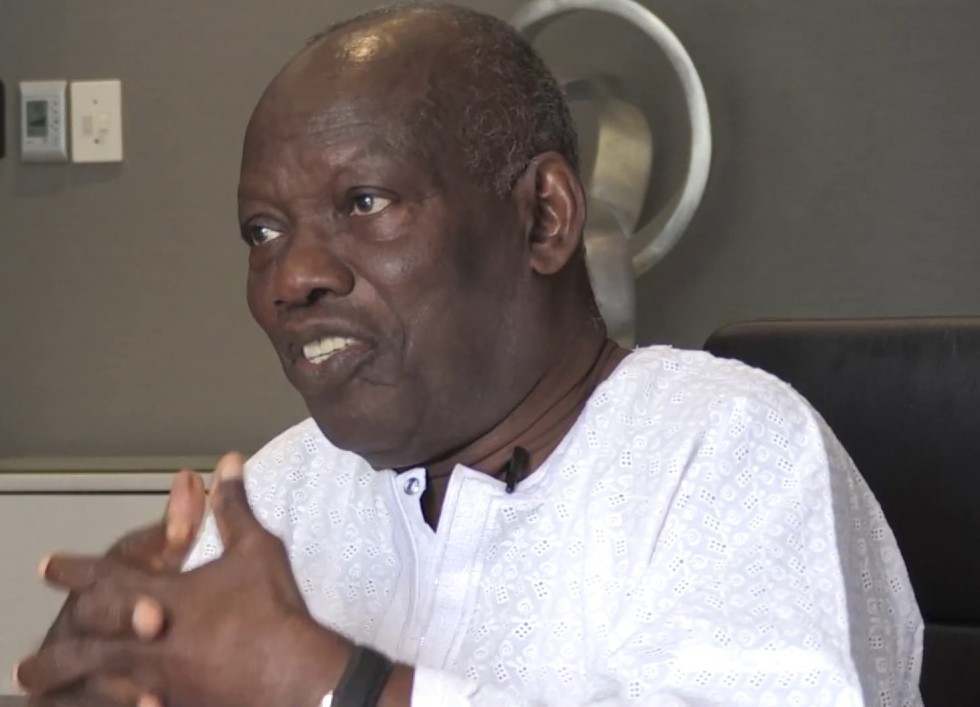The structural Adjustment Programme, (SAP) which has served as the business model for Nigeria in one form or the other since 1982 has come under critical scrutiny again. Delivering the maiden version of the Emma Ezeazu Memorial lecture in Abuja earlier today, Professor Abubakar Momoh of the Lagos State University described the programme as the worst and the most vicious form of economic exploitation in the history of Nigeria. It has not only led to de-industrialisation but also enthroned accumulation by speculation in which everything about accumulation “depends on how smart you are”.

Late Comrade Ezeazu
The Director-General of the Electoral Institute pointed out how it was the period during which Nigeria was under SAP that many of the countries which just entered the great power club such as Brazil and its Asian counterparts laid the foundations of their status today. All other continents left Africa behind, he said, adding that there has never been any recovery from that. Citing some of the consequences as de-industrialisation and corruption, Prof Momoh concluded how all of that left the country as one of traders and front men feasting on oil rents instead of manufacturing which would have linked agriculture and industry.
The outcome, among others, he said, is the death of the visioning process, saying that if the truth must be told, the elite in Nigeria today lacks the values, mannerisms, interest and behavioural patterns that define the national elite as a society’s visioners. Questioning its claim to that status at the lecture, Professor Momoh expressed doubt that the Nigerian elite is ahead of the rest of the society in terms of the values national elite hold as sacrosanct and binding. Without such sense of constitutive interest, they are neither capable of consensus and the discipline to sustain it, he said. Basing his argument on certain behaviour pattern that emanate from the elite, Prof Momoh said such indicated an elite that has not come to terms with its location in society. They do not have values that make it a political class, he said, adding that an elite is supposed to be ahead of the crowd. But, for him, the elite disaster is not about bad morality of the individual members of the elite but something that must be understood within the logic of the prevailing political economy which he dubbed as perverted and contractocracy in nature rather than production.
He argued for return to basics in governance, insisting on the impossibility of governance without values or an ideological framework, irrespective of whether the ideology is radical or conservative. It doesn’t make sense to talk about change, emphasising loot recovery but without challenging the mechanism by which corruption is reproduced, said Momoh who warned of the danger of governance that is not visionary and developmental. “Governance must be developmental or you are not going anywhere”, asserted the lecturer who based his claim on indicators such as 73 million unemployed youths aside from about 1.2 million graduates from over one hundred universities now and then. Government is, in his view, over subscribed to the point that Nigeria is now borrowing to pay salaries. “How sustainable is that?”, queried he.
Remedial measures or palliatives are good, he declared but a developmental agenda is needed because the manifestations of insecurity in kidnapping, assassination and similar forms of violence must be understood as products of frustration, anger and rebellion. The question as he posed it is how Nigeria can turn from a reformist state to a developmental state based on equity and access.
Speaking from the same podium, Rotimi Amaechi, Minister for Transport sought to prove how the government is moving the country to a post corruption era because President Buhari has plugged the privatisation of public resources. It is no longer possible for ministers and public office holders to be generous with public resources, he told the audience which either clapped for him or called him ‘Lion of Niger Delta’ intermittently as he spoke. The president, according to Amaechi, has pulled public resources in such a way that everyone could still access it but under condition in which the president, the CBN and the Minister of Finance are all seeing you.

Rotimi Amaechi, Minister of Transport
Amaechi who also traced his lineage to the radical student movement of the 1980s and even election as NANS President if Ezeazu’s election had not closed the opportunity for him at the NANS Convention in Bayero University in 1985 disagreed with Momoh’s characterisation of the elite, citing himself as an exception. Demonstrating the claim, Amaechi cited his rejection of many lucrative concessions, including offer of oil block, releasing the letter that the then CBN governor wrote the then president about missing NNPC billions and fighting arbitrary deductions from the federal purse under the Jonathan government. These, he said, he had to do out of realisation of their consequences for national security.
He was sure of a change from speculation to a productive economy on the ground that they have received marching orders from the president to that effect, citing Lagos-Ibadan; Calabar- Portharcourt and Kano – Kaduna rail projects in the case of his own ministry.
The first year anniversary ended a well attended occasion, a tribute to Comrade Emma Ezeazu who came to national limelight in the eighties after surviving cultists suspected to have been sponsored by the state against student activism at the University of Nigeria, Nsukka and went on to take on the IBB’s SAP regime. He died last year. Remarkable about his life is how he remained an activist throughout within the context of emergent civil society in the post Cold War.




























